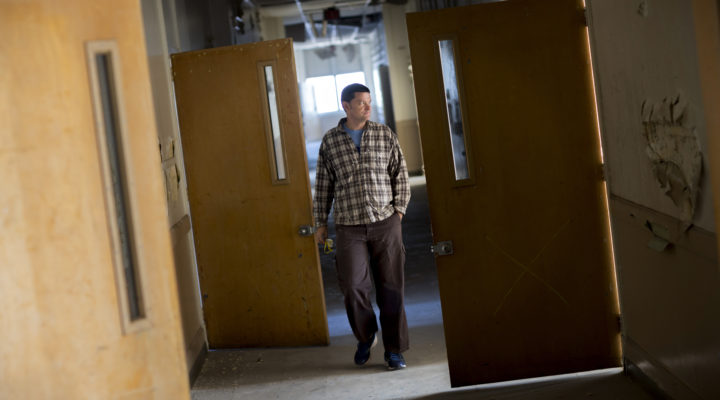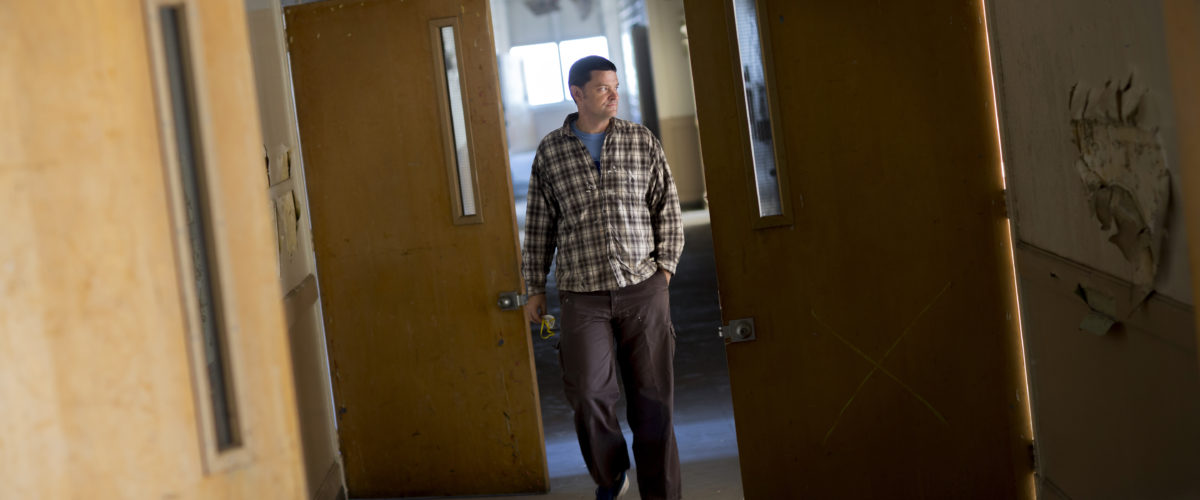Sometimes, individuals become symbols of their communities.
Desiree Dudley-Leach is one of those people. The transformation of her life parallels that of her community, the Accabee neighborhood in North Charleston, S.C.
Both have experienced dramatic improvements in housing, safety and educational opportunities in recent years. Both have been inspired to engage in efforts to sustain those improvements and to pass them along to others.
The common denominator is Metanoia, a grassroots, asset-based community development ministry founded in 2002 by the Cooperative Baptist Fellowship of South Carolina.
Its federal tax form describes the now-independent organization as “a movement of people rooted in faith” who seek to “invest in neighborhood assets to build leaders, establish quality housing and generate economic development.”
The ministry is no stranger to skeptics who say such ambitious goals can’t be accomplished by a faith-based organization led by and for local residents.
But Metanoia CEO Bill Stanfield and his team have since convinced most doubters that communities can be transformed by the creativity, grit and determination of the people who live in them.
“It’s a work in progress but we are changing the way people use lenses to think of charity,” Stanfield said. “We now have the track record to back it up.”
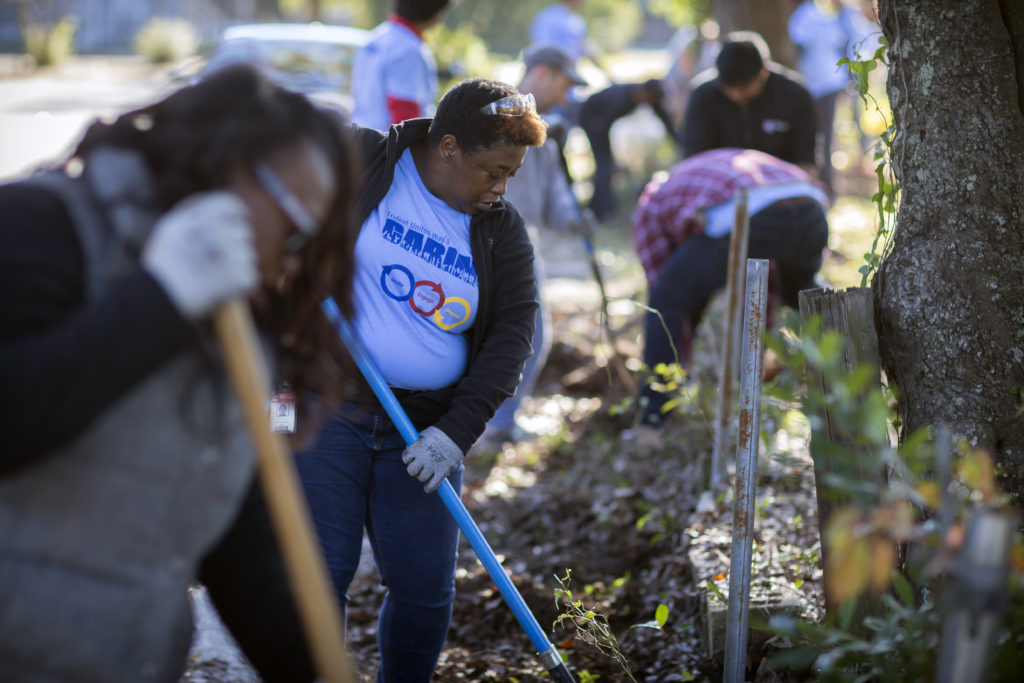
A group of volunteers from Cumming Inc., and the United Way Day of Caring work to clear debris from an empty lot where Metanoia plans to build affordable housing near its school. (BNG/Stephen B. Morton)
In part, that track record can be expressed in dollars. Metanoia has spent nearly $2.2 million for repairs on 72 owner-occupied homes since 2008, according to its 2016-17 annual report. It’s built eight new homes, with another five soon to be constructed. It has a total of 30 properties in its inventory, some of which are set aside for future development.
Meanwhile, Metanoia continues to make advancements in economic development and leadership development.
The asset-based community development approach that generated doubt early on is what now attracts donations, volunteers and increasing community buy-in, Stanfield said.
Its diverse donor base, which takes up four pages of its annual report, ranges from religious groups like the CBF to major corporations, like Boeing.
The model rejects traditional concepts of charity in which outside agencies and ministries arrive with all the answers and money to fix other people’s communities.
Asset-based community development, instead, taps the existing human and physical resources of a community to identify and address systemic challenges.
“Rather than focusing on the problem, we look around for the strengths, gifts and capacities that can be applied toward the problem,” Stanfield said.
The goal also is to avoid unhealthy dependence by requiring community members to participate in the solutions to the challenges confronting themselves and their neighborhoods.
Residents serve on Metanoia’s board of directors and in some staff positions while Stanfield and his wife, co-founder Evelyn Oliveira, purchased a home and are raising a family in the Chicora-Cherokee neighborhood where the ministry was established.
‘It’s definitely been life-changing’
Metanoia’s community-focused methods have made profound differences to many, including Dudley-Leach.
“Metanoia came into my life about three or four years ago,” she said.
The single mother of four boys owns her own home, but it was practically falling down around them. It needed a new roof and the wiring needed to be replaced.
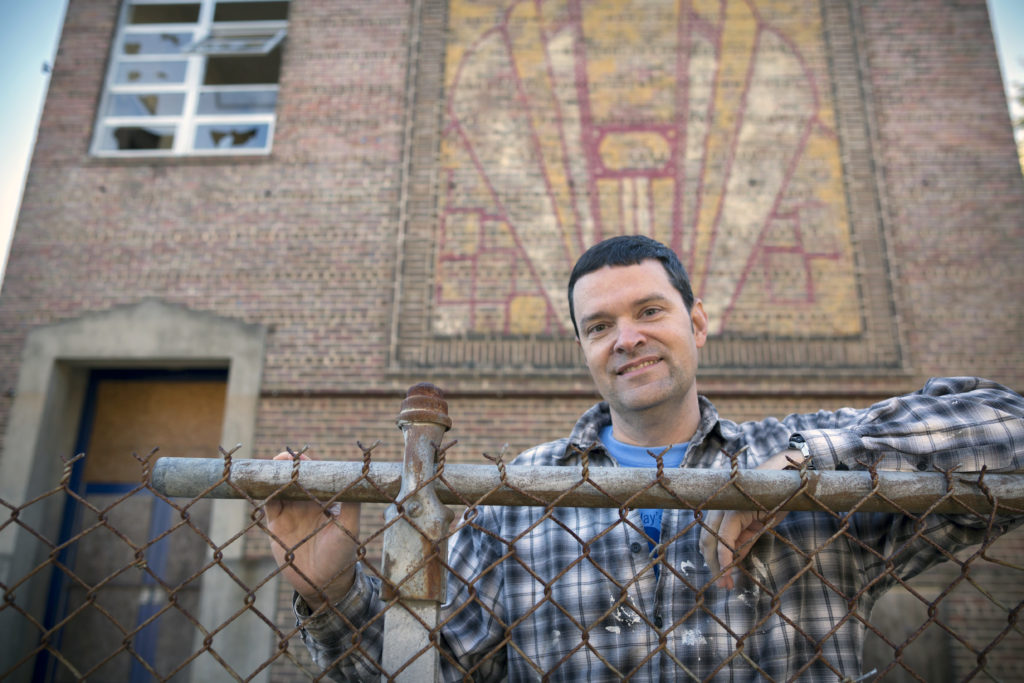
Metanoia CEO Bill Stanfield rolls up his sleeves and joins a group of volunteers to improve the neighborhood around the Metanoia Youth Leadership Academy. (BNG/Stephen B. Morton)
“My back porch was in terrible shape and I did not have a functioning bathroom.”
Dudley-Leach works full-time, but there was no way she could afford to pay for the repairs her house needed. But she had heard around the neighborhood about an organization that could help and she contacted it.
Tony Joyner, Metanoia’s director of housing development, quickly responded and worked out an arrangement between the Owner Occupied Repair Program — a city funded program managed by Metanoia — and Operation Home to effect the repairs.
“I honestly do not know what position me and my children would be in without Metanoia,” Dudley-Leach said. “I have a decent job, but I am a single mother with four kids and I’m trying to provide for them. It would have been hard.”
Inspired by the assistance she received, Dudley-Leach became more involved in bettering the community. She eventually joined the Metanoia board and become active in other community groups. She currently serves as president of Concerned Citizens of Accabee, one of North Charleston’s older and traditionally black neighborhoods.
Even before the home repairs, Dudley-Leach said her children attended Freedom School, the free summer camp offered by the Metanoia. Her boys have been instilled with an entrepreneurial spirit through their attendance in its after-school program.
“It’s definitely been life-changing. It gave me the push I needed.”
‘A change in perception’
Much of the community has felt that motivation, said Joyner, himself a resident of the community.
“As a whole, what we have seen is a change in the perception of the community.”
Metanoia was founded initially to focus on child poverty in the Chicora-Cherokee neighborhood, then thought to have the highest concentration of impoverished youth and children in the state.
But its affordable and safe housing efforts, launched as the community identified more needs in subsequent years, have generated much of the press and donor interest.
Metanoia emphasizes the use of North Charleston contractors for construction and renovation work.
Altogether, the upgrades have sparked a greater community pride and involvement, Joyner said.
“The community has always been labeled as a drug infested neighborhood and a crime-ridden community. We have seen a change in that now. People take more pride now. People are getting little more involved.”
‘It’s shaped my ministry’
Metanoia benefactors and partners also testify to being transformed by the ministry’s asset-based, holistic community development approach to missions.
These range from corporations to local companies, civic groups and religious organizations.
Focusing on solutions through existing community strengths, and witnessing the visible outcomes compels some to mimic Metanoia, said Jay Kieve, moderator of CBF South Carolina.
“I hear churches using that kind of language more and more,” said Kieve, also a Metanoia board member. “That’s been transformative.”

Metanoia Youth Leadership Academy student Alante Mingo solves a math problem while attending class at the school in North Charleston, S.C. (BNG/Stephen B. Morton)
CBF South Carolina and Metanoia are now covenant partners, a relationship that is renewed every three years.
Two other CBF South Carolina partners are Palmetto Works in Conway and Koinania in Columbia, Kieve said. The former offers afterschool programs and job-placement ministries for those leaving the military and prisons. The latter promotes community-driven environmental, economic and personal care and growth.
Both were inspired by Metanoia’s asset-based, community-centered approach, Kieve said.
The leavening continues because those ministries provide opportunities for others to get involved in transformative ministry.
“Now our churches have even more places to plug in.”
But duplicating the approach isn’t easy.
Keive said he’s sat in on meetings where the intention to use the asset-based approach disintegrated.
“It quickly becomes ‘here’s the problem, let’s fix it.’ People are so used to identifying problems and wanting to sink their own assets into fixing them.”
But the asset-based, community development approach employed by the North Charleston ministry has helped CBF South Carolina avoid those pitfalls.
Kieve said the ministry has taught him how to be a better “listener and learner” as he travels the state visiting churches and ministries.
“It’s shaped my ministry.”
It means going into a community, not to bring “the answers,” but to ask questions about local challenges and the assets available to effect solutions.
“It honors them as the experts on their own lives,” he said. “These are the things you learn if you are around Metanoia a little while: to engage in ministry by seeing what God is already doing.”
Shaping a church’s DNA
Ryan Tucker can vouch for that.
Tucker is senior pastor at First Baptist Church in Orangeburg, S.C., located about 70 miles north of North Charleston. The congregation includes Metanoia in its annual budget and its youth participate in the organization’s activities every year.
Tucker said he was introduced to Metanoia in 2008 when he served a church whose pastor was on the ministry’s board. Its practice of involving clients in the solution made a big impression.
“Metanoia and the way they do missions transformed my perspective as a minister.”
Tucker brought those lessons with him to his church in Orangeburg, where financial support for Metanoia conforms to and influences the congregation’s overall ministry approach.
“It’s infected us. … It’s helped inform the DNA of our own church’s missions.”
The 1,100-member congregation is no stranger to missional outreach. Among its programs are feeding and clothing ministries that serve thousands every year.
Seeing how Metanoia avoids charity in favor of empowerment is changing the way First Baptist considers its own outreach.
“We are like any congregation trying to do the best they can to help, but it’s tough distinguishing the difference between giving a hand-up and a hand-out,” Tucker said. “They have mastered the hand-up scenario.”
‘They were sick and tired’
It isn’t always easy to stick to that scenario, Stanfield said. Pressure has often come from well-meaning groups and funders seeking to use their money and people to bring solutions to bear on social ills.
That “we-can-fix-it” mentality often comes with pervasive, negative stereotypes about struggling neighborhoods, he added.
“There are large, dominant forces that have put this identity on communities.”
Those include the media, universities and grant-making entities such as foundations and government. Obtaining that assistance usually requires demonstrating a level of dysfunction.
“Most grants include a needs statement to show how bad off they [the applicants] are,” he said.
Asset-based work can be a turn off for groups accustomed to short-term mission projects seeking measurable results.
“For some people, charity is more about them than those they are helping,” Stanfield said. “If they are into being the hero, then they can’t do this work very well.”
The asset-based approach is difficult for some to grasp because it feels counter-intuitive. To some, it seems as though the problem-identifying part of the equation is being omitted.
“We are not ignoring problems,” Stanfield said, “but engaging in a critical second step, which is what healthy communities do across the globe.”
When Metanoia first arrived, some viewed its proposed asset-based, community-led ministry to be too simplistic to tackle the thorny issues facing Chicora-Cherokee.
“It hadn’t been done here in South Carolina at all,” Stanfield said. “It was new language here.”
But there were some who embraced it from the outset.
“The people in the neighborhood were the easiest to convince. They were sick and tired of being looked at through labels.”
‘A sense of community involvement’
Among them were the people of St. Matthew Baptist Church. Founded in 1900, the African-American church anchors the neighborhood at the corner of Atlantic and Reynolds avenues.
The community’s challenges are visible from the church steps. But so are the human assets needed to bring about change.
The surrounding streets are populated by a mixture of single-family homes and apartment buildings in varying conditions and numerous operating businesses and empty storefronts.
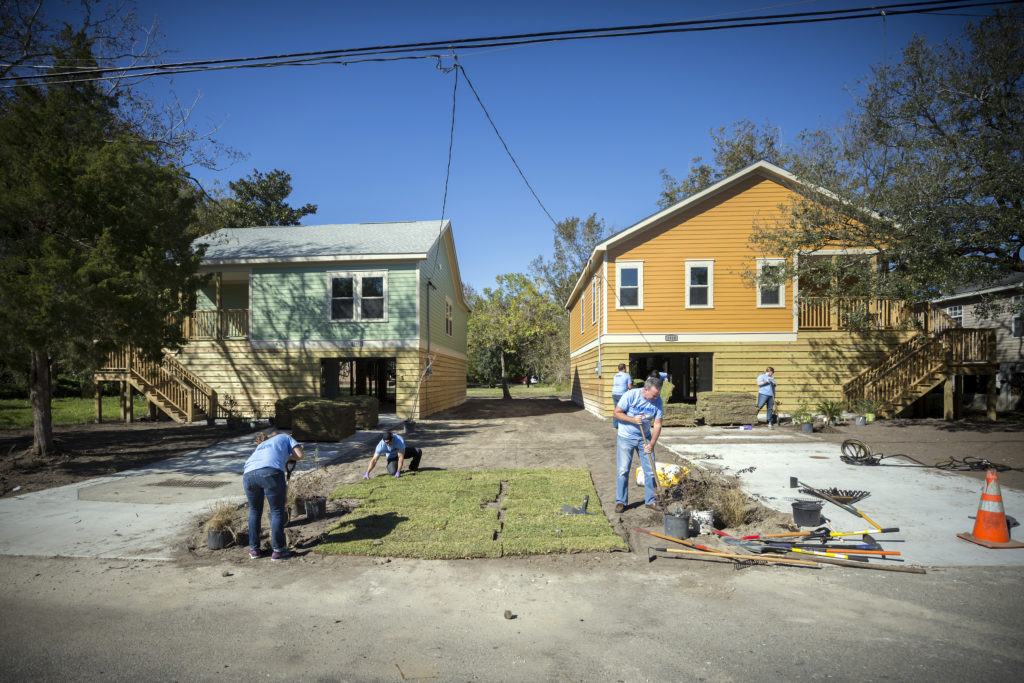
Volunteers from Ingevity corporation join with the United Way Day of Caring to landscape a home that Metanoia recently completed. Metanoia works to establish quality, affordable housing for home buyers, renters and those who seek help in budgeting and increasing their credit scores through financial literacy. (BNG/Stephen B. Morton)
Faith is clearly vital to the community, which hosts several storefronts and stand-alone churches and ministries. These include Trinity Prayer Warrior Ministries and Noah’s Ark Baptist Church.
Colorful, hand-painted signs adorning the churches reflect their essential positivity.
“If God didn’t forgive sinners then heaven would be empty,” Emanuel Seed Harvest Time Church proclaims boldly above the entrance to its storefront facility.
Many were trying to improve the community before Stanfield and Oliveira arrived as urban ministers in 2002. And many continue to do so, either on their own or as partners with Metanoia.
St. Matthew Baptist Church, which operates a food bank and dental clinic, was eager to connect with the new ministry when it arrived.
The Stanfields had joined the church shortly after moving into the neighborhood and Bill Stanfield now serves as an associate minister for the congregation.
Metanoia moved its offices into the church’s education building in 2003. From there the ministry evolved from its initial childhood poverty focus to include affordable housing, home renovation, minority contractor training, community-police partnerships, leadership and culinary arts training and the launch of a youth volunteer and entrepreneur center that includes a screen printing business and coffee shop.
Participating in the venture has been invigorating for the congregation, said Penelope Middleton, a St. Matthew Baptist Church member who serves on Metanoia’s board of directors.
The changes to the surrounding community have been in some cases subtle, and in others quite dramatic, she said.
Among the most noticeable changes is the presence of hope, especially from seeing children graduate from Metanoia programs and go on to college or start businesses. It’s encouraging for families accustomed to having few economic and educational opportunities, Middleton said.
And it’s all come with the Metanoia transformative requirement that citizens participate in helping their own communities.
“There is a sense of community involvement,” she said.
‘They had the fortitude and determination’
That view, and the community participation has been inspiring at City Hall, too, North Charleston Mayor R. Keith Summey said.
“One of our greatest blessings was when Mr. Stanfield and his wife walked into my office 16 or 17 years ago and said, ‘This is our mission.’”
That mission, he recalled, was to work in the African-American community to show how God’s love can bring change.
Summey has been mayor since 1994 in the city where he grew up. That made him all too familiar with the crime, housing, educational and poverty issues facing the Chicora-Cherokee community which the ministers were targeting. It was hard not to have doubts.
“Here was this tall, thin white guy and his young wife and I thought, like most people did, ‘Wow, do they really know what they are getting into?’”
Clearly, they did, Summey said, and he and the city have long since joined in with what Metanoia is doing in their midst.
“They convinced me they had the fortitude and determination to do it. So, I said we would give any support we can to make change.”
In 2012, the city made Metanoia steward of its Owner Occupied Repair program.
“We use their services to do our rehabs through Community Development Block Grant funds,” Summey said. “We know they are doing a good job, and they treat people fairly. It works extremely well for us.”
North Charleston has also provided grants to help finance Metanoia’s youth education and entrepreneurship programs.
The city has its own programs aimed at improving the quality of life across the municipality. Much of it has to do with revitalizing neighborhoods to make them more affordable and healthy, Summey said.
“Without Metanoia’s assistance … what we are doing would be much less effective.”
‘There is a theology behind it’
Metanoia would likely be much less effective if it weren’t trying to follow Jesus’ practice of rejecting stereotypes about the people he served, Stanfield said.
“Jesus … eschews the primary, generally negative labels of people he comes into contact with. Jesus shows us we don’t see like we are supposed to see.”
Metanoia’s asset-focused approach provides new ways of seeing old challenges and trusting that God will see it through.
“There is a theology behind it,” he said.
“We really believe from a theological standpoint that doing the work this way is viewing a community … from God’s perspective. It’s the idea that ‘God don’t make junk.’”
Read more in the Metanoia Series
Metanoia lives into its name as community’s opportunities flourish
Photo Gallery: Metanoia in photos
Related news:
In N. Charleston, justice advocate avoids anger, burnout with centering prayer
Marginalized are harder to see ― and help ― in tourist towns, ministers say
Related commentary:
Requiem for the ‘cut’: Finding connections in a gentrifying neighborhood | Greg Jarrell
Related curated:
Church makes scripture-centered fight against neighborhood displacement the core of its mission
Church planting and the gospel of gentrification
Metanoia Community Development Corporation is a movement of people rooted in faith. They invest in neighborhood assets to build leaders, establish quality housing and generate economic development in North Charleston, South Carolina. They are pushing forward into new relationships with God and one another to create strong communities.
This series in the “Faith & Justice” project is part of the BNG Storytelling Projects initiative. In “Faith & Justice,” we tell the stories of the people and organizations that are helping to bend the “arc of moral justice” towards justice and who are transforming communities. Additional series on this topic include Charlotte: QC Family Tree with Greg and Helms Jarrell.
_____________
Seed money to launch our Storytelling Projects initiative and our initial series of projects has been provided through generous grants from the Christ Is Our Salvation Foundation and the Eula Mae and John Baugh Foundation. For information about underwriting opportunities for Storytelling Projects, contact David Wilkinson, BNG’s executive director and publisher, at [email protected] or 336.865.2688.

